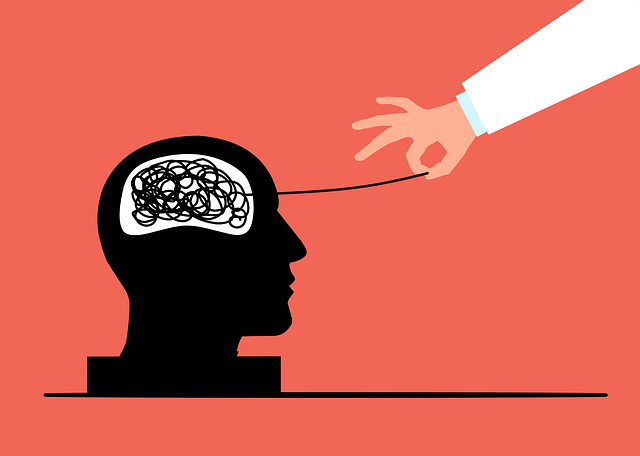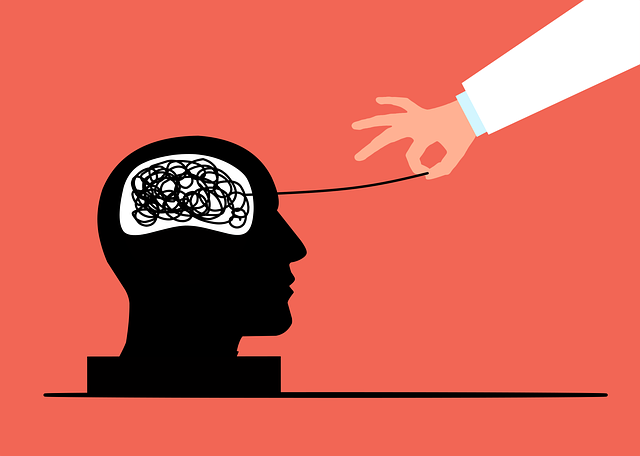In today's fast-paced world, the focus on mental wellness has led to a surge in personalized coaching programs, offering an alternative to traditional therapy. Therapy for Mindfulness goes beyond therapy by providing tailored support and tools for building resilience, emotional intelligence, and overall well-being. This modern approach helps individuals navigate life's challenges with clarity and balance, reducing stress. Combining structured mindfulness practices with personal exploration, coaches create safe spaces to address mental illness stigma, promote positive thinking, and foster self-acceptance. Integrating Mental Illness Stigma Reduction Efforts enhances coping mechanisms and self-compassion, empowering clients to manage stress effectively. Strategic planning, personalized assessments, and targeted interventions ensure successful Therapy for Mindfulness programs that refine over time based on client progress and feedback.
Mental wellness coaching programs are gaining traction as a vital tool for enhancing overall well-being. In today’s fast-paced world, these personalized interventions offer much-needed support for individuals seeking better mental health and balance. This article explores the development of effective therapy for mindfulness coaching, delving into the importance, design principles, and successful implementation strategies to foster positive change. By understanding these key aspects, we can optimize coaching interventions and improve access to life-changing mental wellness solutions.
- Understanding Mental Wellness Coaching: A Growing Need
- Designing Effective Therapy for Mindfulness Programs
- Implementation and Measuring Success in Coaching Interventions
Understanding Mental Wellness Coaching: A Growing Need

In today’s fast-paced world, mental wellness has emerged as a paramount concern, driving the development of innovative coaching programs that cater to diverse needs. Mental wellness coaching goes beyond traditional therapy by offering personalized support and practical strategies for cultivating resilience, emotional intelligence, and overall well-being. It focuses on empowering individuals to navigate life’s challenges with greater clarity, purpose, and balance, thereby fostering a healthier mind in a stressful environment.
The growing demand for mental wellness coaching is driven by several factors, including the rising prevalence of mental illness, increased awareness about mental health, and the limitations of conventional therapy models. Many people seek alternative approaches that align with their unique preferences, such as mindfulness meditation practices, to complement or enhance traditional treatment methods. This shift reflects a broader societal movement towards self-care, holistic healing, and Mental Illness Stigma Reduction Efforts, underscoring the need for accessible and effective mental wellness coaching programs, particularly in the form of Mental Wellness Podcast Series Production, that cater to diverse populations.
Designing Effective Therapy for Mindfulness Programs

Designing effective therapy for mindfulness programs requires a nuanced approach that balances structured practices with personal exploration. Coaches play a pivotal role in guiding individuals through mindfulness exercises tailored to their unique needs, fostering an environment of trust and understanding. By incorporating empathy building strategies, sessions can create safe spaces where participants feel heard and supported. This, in turn, facilitates open dialogue about challenges related to mental illness stigma reduction efforts, encouraging positive thinking and self-acceptance.
The key to successful mindfulness therapy lies in tailoring each program to an individual’s specific goals and experiences. Coaches should employ a variety of techniques—from guided meditations to body scans—to cater to diverse learning styles. By integrating Mental Illness Stigma Reduction Efforts into the fabric of these programs, participants can develop coping mechanisms that challenge negative stereotypes and promote self-compassion. Ultimately, fostering Positive Thinking becomes more achievable when individuals gain a deeper understanding of their minds and learn to navigate stress with increased mindfulness.
Implementation and Measuring Success in Coaching Interventions

The successful implementation of mental wellness coaching programs involves careful planning and tailored strategies. Coaches should begin by assessing clients’ unique needs, goals, and challenges to create a customized plan that incorporates effective therapy for mindfulness and emotional well-being promotion techniques. This personalized approach ensures that interventions are not one-size-fits-all but rather targeted at addressing specific issues.
Measuring the success of coaching interventions is crucial for evaluating their effectiveness and making necessary adjustments. Regular check-ins, progress tracking, and feedback mechanisms help in gauging improvements in clients’ stress management abilities and overall crisis intervention guidance. By combining qualitative and quantitative methods, coaches can assess not only changes in symptoms but also the quality of life and emotional resilience of their clients. This holistic measurement approach provides valuable insights that guide the refinement and improvement of coaching programs over time.
Mental wellness coaching programs, centered around mindfulness practices, are transforming lives. By integrating effective therapy techniques, these programs offer a tailored approach to managing mental health. Through successful implementation and measurable outcomes, they provide individuals with the tools to navigate life’s challenges. As research continues to highlight the benefits of mindfulness, the demand for accessible and impactful coaching interventions will undoubtedly grow, shaping a brighter and more resilient future for all.














